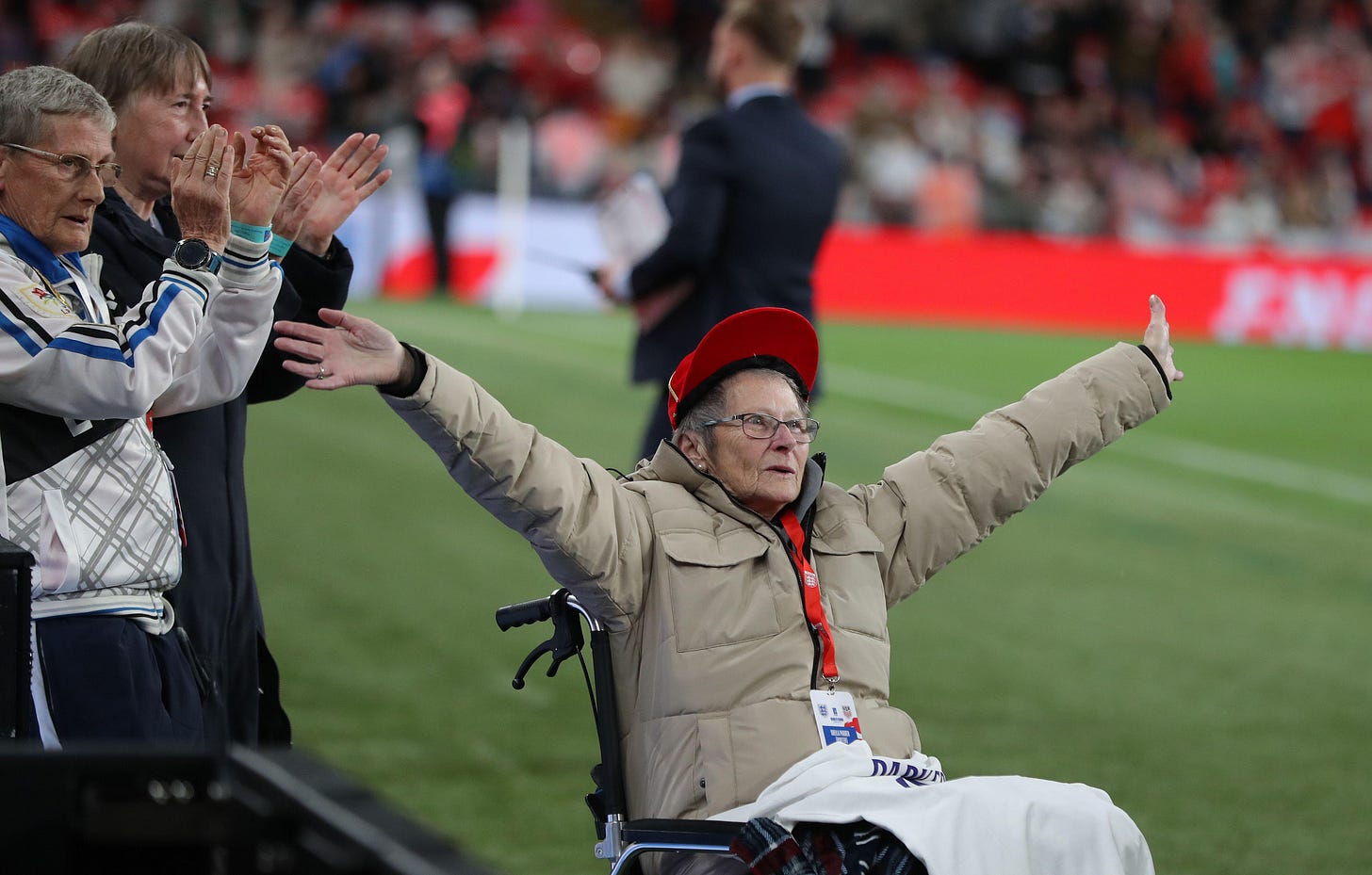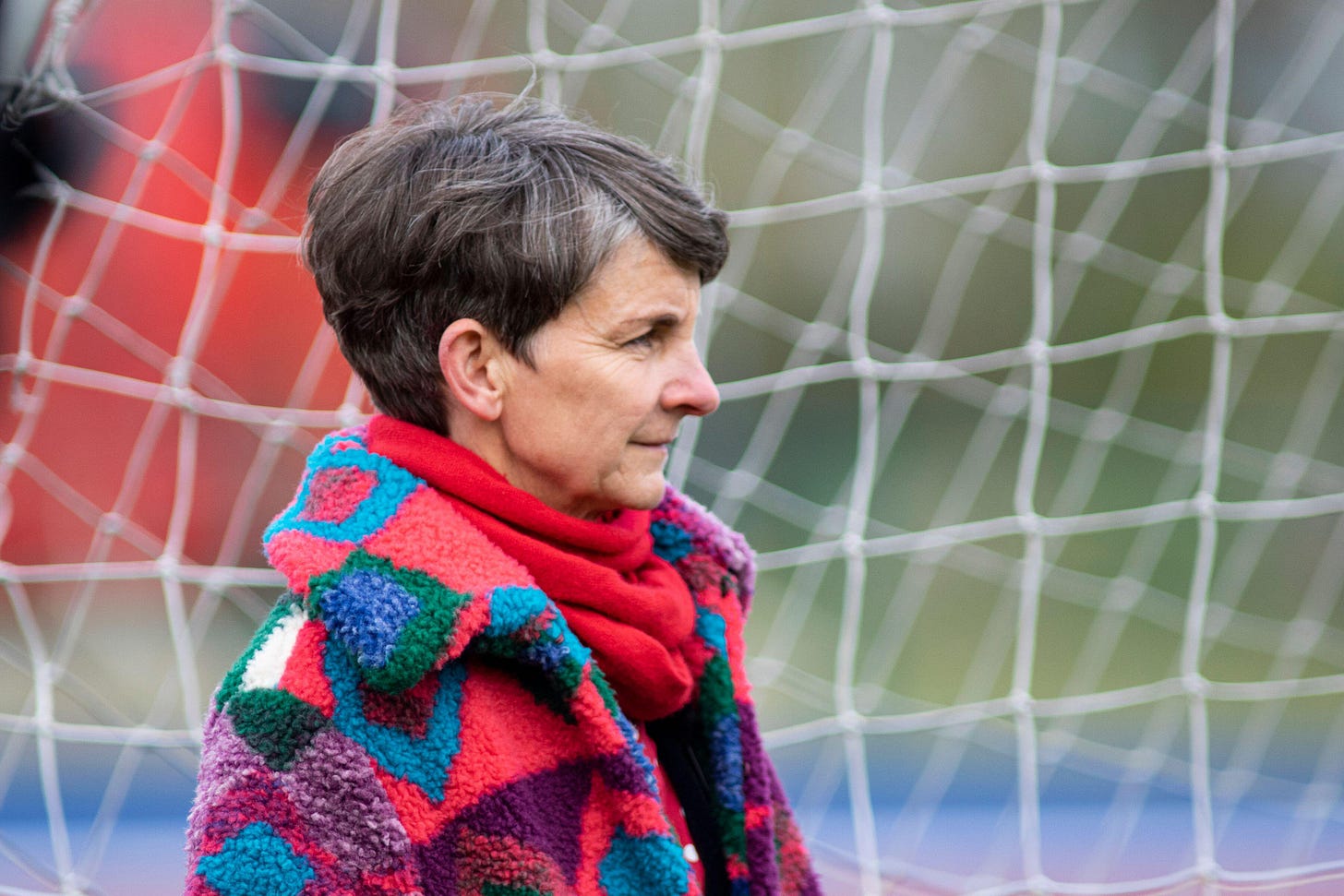These are the female players who paved the way for the Lionesses
It took a century of trailblazers to create the game we know and love.
As the Lionesses take to the world stage following a historic summer in last year’s European Championships, who are the unsung heroes who empowered women to take on the beautiful game?
From the FA ban in 1921, to the wartime trailblazers and activists calling for a more diverse sport, it has taken incredible women to propel football to where it is today.
Dick Kerr Ladies and Fodens Women’s FC
The World Wars, despite the immense tragedy across the globe, shone a light on the contributions of women to society, and this extended to sport as well.
“When the men’s teams were off at war, the women set up their own teams in factories for leisure,” explains Carrie Dunn, author of The Reign Of The Lionesses: How European Glory Changed Women’s Football In England.
“The Dick Kerr ladies were the most famous team, and represented Britain for a long time. They attracted thousands of fans to matches, so they were catalysts for the FA ban – as the crowds began to come in, and the FA did not think that was appropriate for women,” she explains.
The Dick Kerr ladies, who began as merely a factory team, refused to hang up their boots and continued playing in some capacity “for almost another 50 years”, says Dunn.
Similar to the Dick Kerr ladies, Fodens Ladies FC were initially a factory team based in the northwest, she adds. “They were one of a number of women’s teams touring the world in the 1940s-60s.”
“There still was a demand for it, even though it was banned in England. They created a legacy for working-class women in football, organising their own leisure in a masculine domain. It shows incredible resilience.”
Sheila Parker
“Sheila Parker was the first official England captain,” says Dunn. “There had been unofficial teams referred to as England, but when the FA organised themselves, she was the first official England captain. She was a mother of young children, a proper grown-up compared to the other women playing, and as a woman in the early 1970s, was dealing with the same things many of our players are now – playing football and motherhood.”
Kerry Davis
Kerry Davis was the first black woman inducted into the National Football Museum Hall of Fame, and made her England debut in 1982.
“She was the first official black female England international. Now, people are realising the need for diversity in the England team. It has been very important in the past year since the Euros, to acknowledge the history of the women’s game and those that came before. There are still so many stories to tell,” Dunn continues.
Eniola Aluko
“Eniola Aluko is a former England striker [first playing for the side in 2004] and qualified lawyer. She studied throughout her footballing career, which is amazing,” notes Dunn.
“She is most notable for powerful statements she made following an inquiry into racism in the England camp. She is pushing for diversity at the Lionesses level – these conversations are happening because of her.”
Laura McCallister
A vice president at UEFA, Laura McCallister “has been in Welsh football her whole life and was one of three players lobbying UEFA in the Nineties to recognise women’s football. She has a real drive to push the game forward”.
Casey Stoney
An important moment in the history of LGBTQ+ inclusivity in England’s footballing world, came with the ex-England captain representing the community.
Back in 2014, after captaining the team in the 2012 Olympics, Casey Stoney was invited on to ITV’s Lorraine to talk about having twins with her partner, Megan Harris.
“It was so important to see them talking on breakfast TV,” says Dunn. “It was serious mainstream recognition for the LGBTQ+ community.”







